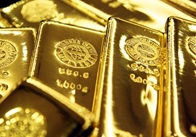October Personal Income And Outlays And Gold
 The PCE price index and consumer spending failed expectations in October. What does it mean for the gold market?
The PCE price index and consumer spending failed expectations in October. What does it mean for the gold market?
As in September, the October report on personal income and outlays does not raise odds for a December interest rate hike. The PCE price index, one of the Fed’s favorite gauges of consumer inflation, increased 0.1 percent in contrast to a decrease of 0.1 percent in September, but the core PCE price index, which excludes food and energy prices and is even more favored by the Fed as a gauge of consumer inflation, increased less than 0.1 percent, compared with an increase of 0.2 percent in September. The consensus estimate was 0.2 percent. On an annual basis, the PCE price index increased 0.2 percent, while the core PCE price index rose 1.3 percent. The Fed’s target is 2 percent. These numbers will not lift the odds for a December rate hike, but they will not lower these odds either.
Personal income increased 0.4 percent monthly, in line with expectations, while consumer spending rose only 0.1 percent, below the expectations of a 0.3-percent jump. Again, funny economists blame the unseasonably warm weather. It seems that it is either too cold (as in January), or too warm for shopping. They do not understand the concept of debt overhang, which created a need for household deleveraging. This is why the economic recovery after the Great Recession has been so sluggish. Consumers are cautious – and they have good reasons for that – which explains why Americans boosted the savings rate to 5.6 percent in October, the highest level in three years.
In consequence of a slowdown in consumer spending, the Atlanta Fed GDPNow Forecast for the fourth quarter declined by from 2.3 percent to 1.8 percent. Weak consumer spending will not raise the odds for a December rate hike, but it is high enough for the Fed to act.
Summing up, the October report on personal income and outlays is not very optimistic, but it will rather not change the course of the Fed. Therefore, gold will not find support in this report and will likely remain under downward pressure until December.
If you enjoyed the above analysis, we invite you to check out our other services dedicated to the precious metals investors. We invite you to join our gold newsletter today - you’ll also gain 7-day trial of our premium Gold & Silver Trading Alerts. It’s free and if you don’t like it, you can easily unsubscribe.
Arkadiusz Sieron
Sunshine Profits‘ Gold News Monitor and Market Overview Editor















